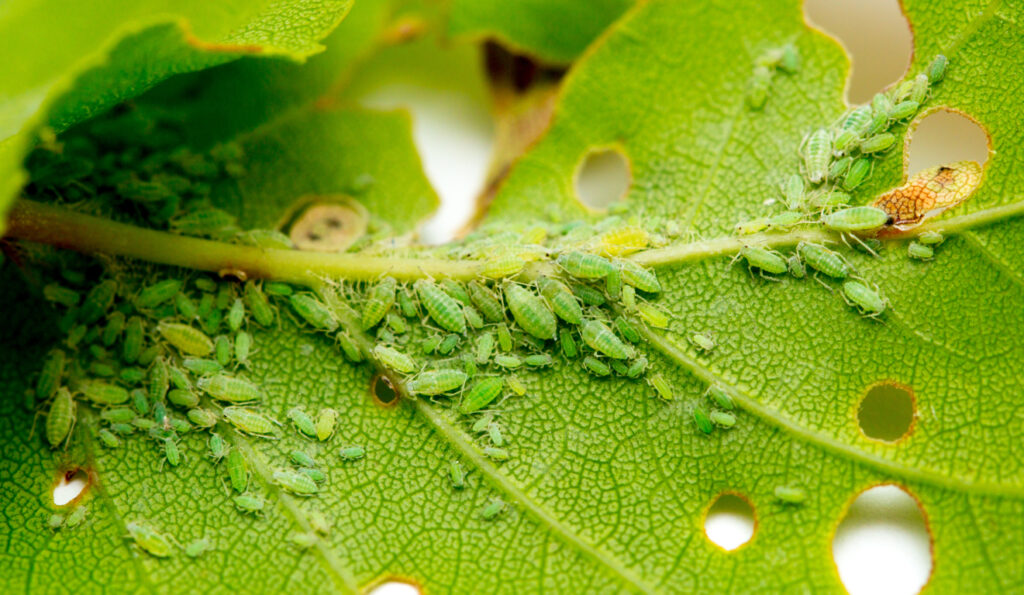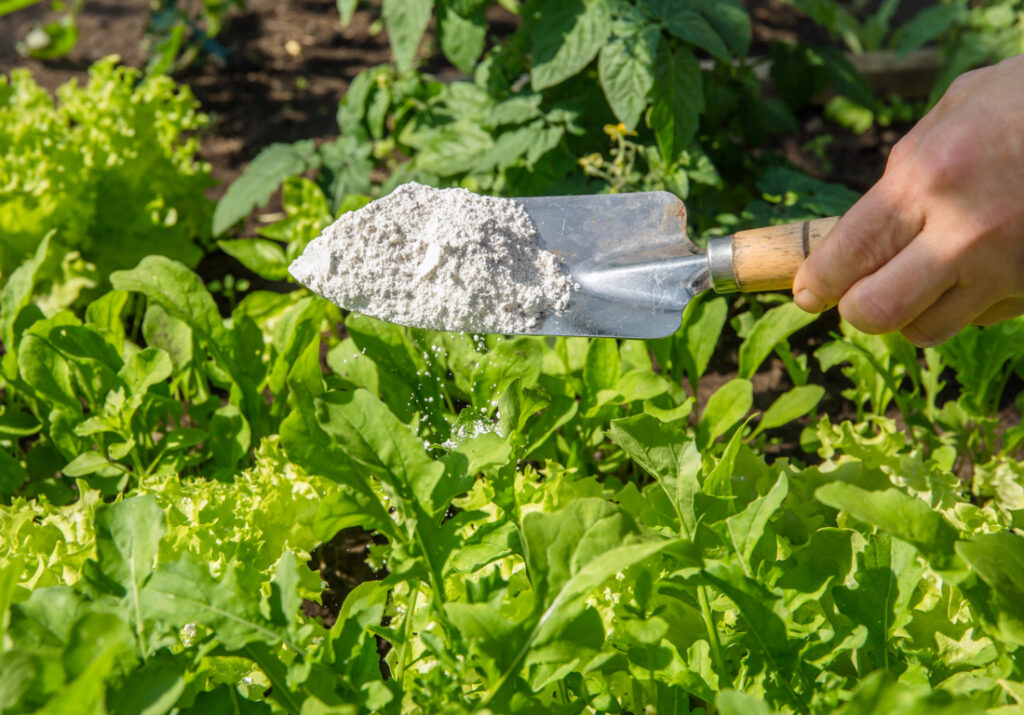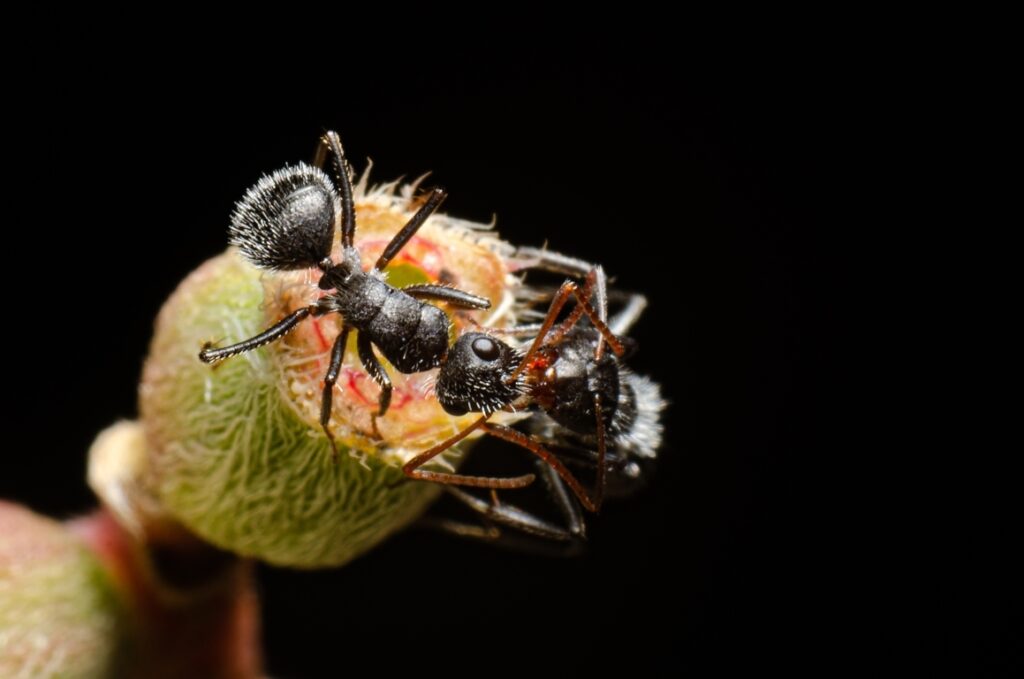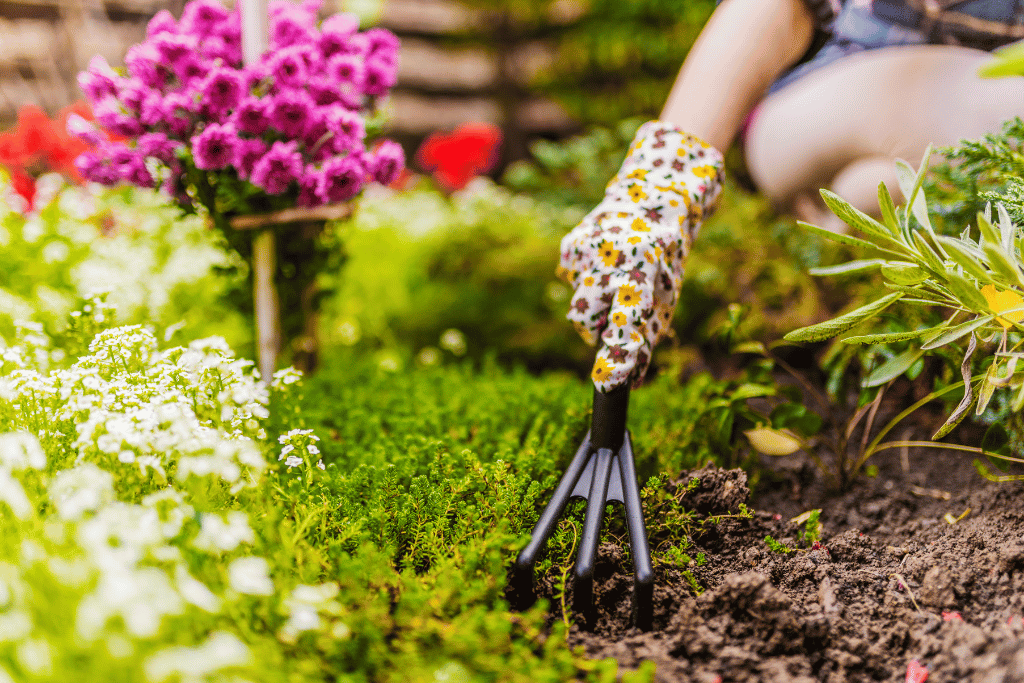
Whether you’re working with potted plants or a big vegetable garden, a few ants roaming around is usually not a cause of concern. However, if you have multiple ant nests, biting ants, or your ants are causing problems for your plants you may feel it’s time for action.
You might now be wondering how you can get rid of the ants in your garden without killing your plants.
Store-bought pesticides, ant powders, and bug sprays can contain chemicals that are harmful to your plants and to you. This article will cover a few natural methods and solutions to get rid of ants in your garden. Firstly, it is important to understand how ants can harm your plants.
How Can Ants Harm Your Plants?
Ants are fine in small amounts, having a severe ant infestation can damage your plants. Here’s how ants can harm your garden:
They encourage aphids!
Did you know ants can “farm,” their own aphid colony?
Ants feed on sugar, and aphids are a type of pest that naturally secret a sugar byproduct called “honeydew.” As a result, ants help the growth of aphids and farm these pests like we farm chickens. Ants protect an aphid population for a steady supply of honeydew. In biology, this is known as “mutual symbiosis,” a mutually beneficial relationship between two species.

When aphids become prevalent in your garden, they damage your plants by sucking nutrients and sap from them.
Biting ants
A garden is a place of comfort. Red ants and fire ants can deliver a nasty sting. Fire ants in particular inject venom that can leave a painful welt for several days.

Maintaining your garden can become frustrating with these pesky insects around. Your children and pets might also come into contact with these ants and go through an unpleasant and painful experience.
Property damage
Another type of ant you don’t want to have an overpopulation of is the carpenter ant. Apart from delivering a painful bite, these ants look for shelter in wood. As a result, they can invade wooden structures in and around your house, ultimately leading to serious property damage.
13 Ideas to Eliminate or Deter Ants in Your Garden Without Killing Your Plants
1. Boiling water
Boiling water is one of the easiest and most natural ways to get rid of ants. Pour the boiling water into the entry points of the ant nests around your garden. Make sure to repeat the process a few times to kill the queen. Simply killing worker ants won’t be enough, as the queen will lay eggs again, increasing the ant population in your garden.
Do not pour hot water directly over the stems or leaves of plants, especially if you have been spraying your plants with insecticides.
2. Diatomaceous earth
Diatomaceous earth, also called DE, is the fossilized remains of single-celled algae diatoms. It is a naturally abrasive substance that kills ants by cutting them up as they crawl over it. This natural insect repellent looks like talcum powder. You can easily purchase DE at most garden supply stores or order it online.

To keep the ants away from the plants, sprinkle DE around them. Make sure to buy food-grade diatomaceous earth, as the other types can be harmful.
3. Boric acid and sugar paste
Boric acid is harmful to ants but not to your plants. However, to make the ants eat the boric acid, you need to mix it with sugar and make a paste. Apply the paste close to the ant nests in your garden. The ants will eat the paste and take it to their queen. You’ll notice a considerable drop in the ant population in a couple of days.
4. Control aphid growth
Aphids are one of the most common reasons why ants infest your plants.
One of the ways to get rid of ants in your garden without killing plants is to control or get rid of the aphid population. You can use various methods to get rid of aphids, such as:
- Soap and water spray-1 teaspoon of dishwashing soap in 3 liters of water.
- Neem oil spray-2 tablespoons of neem oil in 3 liters of water.
- Cayenne pepper spray-¼ teaspoon of cayenne pepper in 3 liters of water.
5. Brewed coffee grounds
Ants are naturally averse to intense and sharp smells, and that’s where your coffee grounds can come to use. Instead of throwing them out, sprinkle the coffee grounds around the ant nests in your garden or around potted plants.

The highly sensitive antennae of the ants will pick up the smell of coffee, and the ants will relocate in a few days. Even though this method will not kill the ants, it might make them move somewhere away from your plants.
6. Baking powder and sugar mixture
Just like boric acid, baking powder is harmful to ants if ingested. Moreover, baking powder and sugar are readily available in every household. Make a paste of baking powder and sugar with a batter-like consistency. Apply this paste close to the nests. As the ants are attracted to the sugar, they will ingest baking powder, damaging themselves internally. The ant population will drop considerably in a few days.
7. White vinegar spray
Vinegar is not only an excellent insect repellent but also a natural insecticide. The ants hate its strong smell, making it a great natural way to get rid of them.

Mix white vinegar or apple cider vinegar into a water bottle and make a diluted solution. Pour the solution into a spray bottle and spray it wherever you see ants or a nest. Keep spraying over the next few days until the ants disappear entirely.
8. Soap and water solution
A soap and water solution is a time-tested way to eliminate ants in your garden. It works on many levels and discourages ants from making nests in your gardens.
- Soap can reduce the surface tension of the water and make ants drown
- Dish soap contains detergents that can break down the cells in an ant’s body and kill it
- Soap makes it hard for ants to move around
- Soap makes ants lose their pheromone trail, the trail that leads them back to their nests
Mix three tablespoons of dish soap in a liter of water and pour it into a spray bottle. Spray around the ant trails and inside the nests, and see the magic in a few days. You can also buy insecticide soap to kill ants more efficiently. However, ensure that you don’t spray ordinary or insecticide soap directly on the plants.
9. Cayenne pepper and water solution
Cayenne is a great way to kill ants without damaging your plants, but it can also be dangerous for pets and children. To use cayenne as an ant deterrent, create a solution with three tablespoons of cayenne pepper powder, ½ teaspoon of liquid dish soap, and three liters of water. Transfer the solution to a spraying bottle.

For best results, keep this solution at least six inches away from pets and children, so they don’t accidentally get sprayed with the liquid when handling it.
Mist around plants where ants are known to gather and over the nests. Even though this solution will not kill them, it will act as a potent deterrent, forcing the ants to move elsewhere. Use a fine mist sprayer if possible because larger droplets can damage tender leaves on young seedlings or cuticles on mature leaves.
10. Canola oil
Canola oil is a dual-purpose solution for ants infesting your garden. It can repel them due to its strong smell, but it can also suffocate them if they get it on their bodies. Ants breathe through tiny holes called “spiracles” on their bodies. If they get canola oil on their bodies, they find it impossible to breathe, ultimately dying of suffocation.
To apply:
- Make a solution by mixing two tablespoons of canola oil, ½ tablespoon of dish soap, and a liter of water
- Mix it well and pour the solution into a spray bottle
- Spray wherever you see ants and close to their nests
11. Orange peels
Orange peels are a natural insecticide, as they contain a chemical called D-Limonene. This chemical removes the wax coating from ants’ bodies and suffocates them.

The peel also acts as an organic pest deterrent due to its strong smell, and you can put it into your garden or around the house to keep ants away without damaging your plants.
12. Beneficial nematodes
Nematodes can have a variety of functions depending on their types. They can harm the plant’s roots, play a role in nutrient cycling, and even help control pests.
Adding beneficial nematodes to the soil can help you control the ant population. These types of nematodes are readily available at gardening stores or online.
13. Cinnamon
Even though cinnamon doesn’t kill ants, it can be a reliable deterrent. You may even use it preemptively to protect your plants from ants.

Sprinkle powdered cinnamon around the ant-infested areas in your garden, and the ants will stay away from that place.
Do These Methods Pose a Threat to Humans, Pets or Beneficial Insects?
Warning!!!
Some of the methods mentioned above can pose a serious risk to humans, pets and even beneficial insects.
Inhaling or accidental ingestion of a strong insecticide can cause serious problems to humans and pets. One can suffer from breathing issues, choking, and even heart problems. Always read and follow any instructions.
Cayenne pepper can cause eye irritation in animals and humans.
Soap solution can also be harmful to animals since it contains glycerine, which can be toxic for dogs and cause gastrointestinal problems.
If your pet is suffering from a kidney or stomach disease, it’s better not to use white vinegar spray in the garden. Accidental ingestion can cause serious health problems.
Baking powder and sugar mixture can also be a cause of concern if your pet ingests it in a large amount. It can cause excessive thirst, vomiting, and even diarrhea.
Ingesting coffee grounds can be life threatening for cats and dogs. So, it is not recommended to use this method around pets.
Borax can sometimes cause skin irritation and gastrointestinal problems in pets if ingested.
Finally, food-grade diatomaceous earth poses no threat to humans and pets. However, it can be deadly for beneficial insects.
Always thoroughly research any pest control methods and any ingredients you plan to use and their dangers to humans, pets, and other insects. Follow any appropriate guidelines for your garden and your family.
Ants Aren’t All that Bad
Ants aren’t inherently bad for your plants like other pests are. If you notice a few ants roaming about, it shouldn’t be a cause for concern.

Here are some ways ants help your plants and your garden:
- Ants can help you control pests in your garden by eating their eggs and offspring
- Ants also aerate the soil and fertilize plants because they accelerate the decomposition of organic matter
- When ants move from plant to plant, they act as pollinators and contribute to the ecosystem, resulting in a healthier garden
One or more of the methods above might help you to get rid of ants in your garden without damaging your plants. Or, you might just decide your ant population is not that bad after all!



